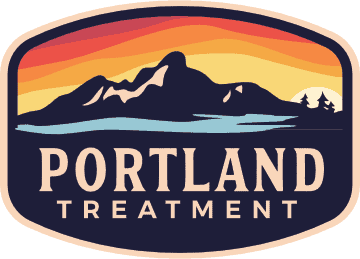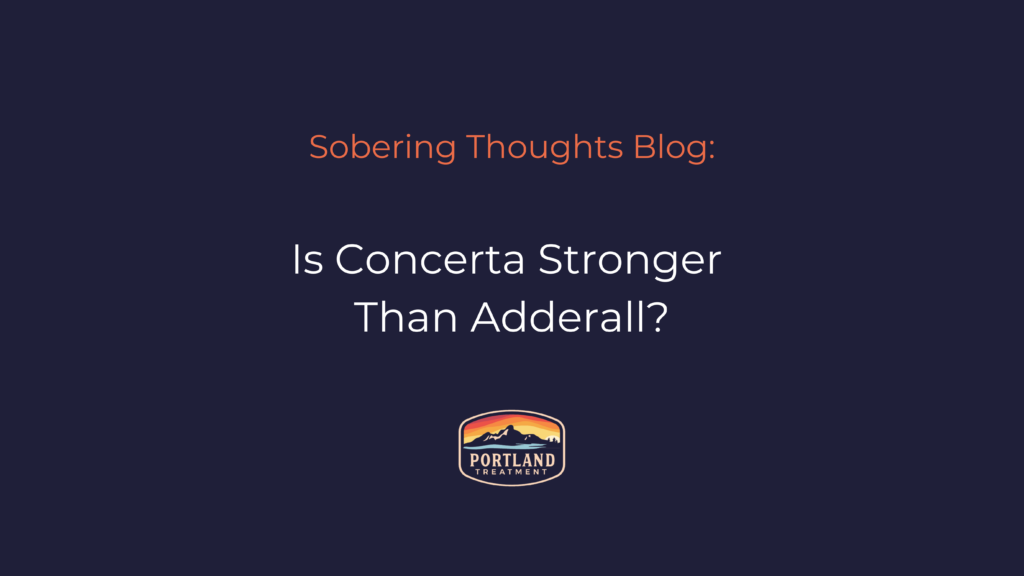Tailored Alcohol Recovery Plans at Portland Treatment in ME: A Comprehensive Guide Alcohol addiction is a serious issue that affects individuals and their loved ones. Fortunately, there are tailored alcohol recovery plans available to help individuals overcome their addiction and regain control of their lives. In this article, we will delve into the concept of …
Tailored Alcohol Recovery Plans at Portland Treatment in ME: A Comprehensive Guide
Alcohol addiction is a serious issue that affects individuals and their loved ones. Fortunately, there are tailored alcohol recovery plans available to help individuals overcome their addiction and regain control of their lives. In this article, we will delve into the concept of tailored alcohol recovery plans, the benefits they offer, and the recovery options available at Portland Treatment in ME.
We will also explore the importance of choosing the right treatment center, the personalized approach to recovery, support services and aftercare, as well as the resources available for recovery and assistance. Join us as we take a closer look at how tailored alcohol recovery plans can provide individuals with the support and guidance they need to embark on the path to sobriety and long-term wellness.
Understanding Tailored Alcohol Recovery Plans
Understanding tailored alcohol recovery plans involves comprehensive individualized treatment plans that address the specific needs of individuals seeking recovery from alcohol addiction. These plans are offered by addiction treatment centers such as Portland Treatment, a leading facility near Portland, Maine, known for its evidence-based approach and commitment to SAMHSA’s guidelines for substance abuse treatment.
Individualized care encompasses a personalized approach to alcohol recovery, considering various factors such as medical history, mental health conditions, and social support systems. This tailor-made treatment may include therapy sessions, medication management, and holistic wellness activities.
It’s crucial for addiction treatment centers to adhere to evidence-based practices, utilizing treatment methods and therapies with proven effectiveness in addressing alcohol addiction. Portland Treatment prioritizes this approach, ensuring that their patients receive the most effective and appropriate care.
The selection of a reputable addiction treatment center plays a crucial role in the success of alcohol recovery plans. By choosing a facility near Portland, Maine that complies with SAMHSA’s standards and guidelines, individuals can access high-quality, reliable care that prioritizes their well-being and long-term sobriety.
Portland Treatment is a trusted provider of drug and alcohol addiction treatment in Maine, offering levels of care including Partial Hospitalization Program (PHP) and Intensive Outpatient Program (IOP). With a warm, inviting, and compassionate approach, Portland Treatment is dedicated to supporting individuals suffering from drug and alcohol addiction on their path to recovery. Their programs are tailored to meet each individual’s unique needs, providing comprehensive care that addresses the physical, emotional, and psychological aspects of addiction.
What are Tailored Alcohol Recovery Plans?
Tailored alcohol recovery plans are specialized treatment programs designed to address the unique needs of individuals struggling with alcohol addiction. These individualized care plans are tailored to provide comprehensive support and therapy for those battling substance abuse.
By offering a personalized approach to alcohol addiction treatment, these tailored recovery plans take into account the specific circumstances, triggers, and underlying factors that contribute to an individual’s substance abuse. This level of customization allows for a more holistic and effective treatment experience, as it addresses the psychological, emotional, and physical aspects of addiction.
The tailored plans often include a combination of counseling, therapy, medication management, and support groups, all geared towards the individual’s needs and goals.
Benefits of Tailored Alcohol Recovery Plans
Tailored alcohol recovery plans offer numerous benefits, including personalized therapy, dedicated rehabilitation programs, and the development of individualized treatment plans to aid in the recovery journey from alcohol addiction.
By engaging in personalized therapy, individuals struggling with alcohol addiction can address their specific needs and challenges with the guidance of trained professionals, resulting in more effective and targeted support. Dedicated rehabilitation programs provide a structured and supportive environment for individuals to focus on their recovery, offering a combination of evidence-based treatments and holistic approaches to address the physical, mental, and emotional aspects of addiction.
The development of individualized treatment plans ensures that each person receives tailored care that aligns with their unique circumstances, increasing the likelihood of successful long-term recovery.
Recovery Options at Portland Treatment in ME
Recovery options at Portland Treatment in Maine encompass a range of programs and services tailored to address substance use disorders, including outpatient care, individual therapy, and holistic approaches to recovery. Portland Treatment is dedicated to providing comprehensive support for individuals seeking recovery from addiction.
With a strong emphasis on individualized care, Portland Treatment offers outpatient programs that allow individuals to receive treatment while maintaining their daily routines. Along with traditional therapy, the center integrates holistic approaches such as mindfulness practices, yoga, and nutritional counseling to address the physical, mental, and emotional aspects of recovery.
Available Treatment Programs
Portland Treatment in Maine offers diverse treatment programs, including outpatient care, residential treatment, and medication-assisted treatment, ensuring that individuals have access to a comprehensive range of recovery options tailored to their specific needs.
The outpatient care program at Portland Treatment in Maine provides flexible treatment plans for individuals who can benefit from ongoing support while maintaining their regular daily routines. This program may include individual and group therapy, family counseling, and medication management, all designed to address the unique challenges of each patient.
For those requiring a more structured approach, the residential treatment program offers a supportive environment where individuals can focus solely on their recovery. With 24/7 care and a variety of therapeutic activities and interventions, this program aims to provide a comprehensive and immersive experience to promote lasting healing and growth.
Portland Treatment incorporates medication-assisted treatment as part of its comprehensive approach. This evidence-based method combines medication with counseling and behavioral therapies to address substance use disorders effectively, helping individuals manage withdrawal symptoms and cravings while working towards long-term sobriety.
Customized Recovery Plans
At Portland Treatment in Maine, customized recovery plans are crafted to provide individualized care, holistic approaches, and specialized support for individuals with dual diagnosis, ensuring a comprehensive and tailored path to recovery.
Individuals at Portland Treatment undergo thorough assessments to understand their unique needs, allowing the development of personalized recovery plans tailored to their specific challenges and strengths. The holistic approach integrates various therapeutic modalities, such as cognitive-behavioral therapy, mindfulness practices, and experiential therapies, ensuring a well-rounded foundation for healing.
For those with dual diagnosis, specialized support is embedded within the treatment framework, addressing both substance abuse and co-occurring mental health disorders with sensitivity and expertise. The multidisciplinary team collaborates closely to provide comprehensive care that acknowledges and adapts to the complexities of dual diagnosis, fostering a supportive environment for sustainable recovery.
Choosing the Right Treatment Center
Choosing the right treatment center is a crucial step in the journey to addiction recovery, as it ensures access to professional care, evidence-based treatments, and a supportive environment within a trusted healthcare facility.
Professional care provided by trained and experienced staff members can make a significant difference in the recovery process. Evidence-based treatments, such as cognitive-behavioral therapy and medication-assisted treatment, are proven to be effective in addressing addiction.
A supportive environment within a reputable healthcare facility can offer the encouragement and resources needed to overcome challenges and embrace a sober lifestyle.
Factors to Consider
When evaluating treatment centers, several critical factors should be considered, including accreditation, adherence to SAMHSA guidelines, and the acceptance of insurance plans to ensure accessible and comprehensive care for individuals seeking recovery.
Accreditation serves as a crucial indicator of a treatment center’s commitment to providing high-quality care, as it demonstrates compliance with rigorous industry standards and best practices. Adherence to SAMHSA guidelines further guarantees that the facility follows evidence-based protocols and treatment approaches, essential for promoting positive treatment outcomes.
The acceptance of insurance plans significantly eases the financial burden on individuals seeking treatment, ensuring that they can access necessary services without incurring excessive out-of-pocket expenses.
Success Rates and Testimonials
Assessing success rates and testimonials from individuals who have received care at an addiction treatment center provides valuable insights into the efficacy of the programs and the potential for long-term care and recovery.
There’s a profound impact when individuals share their experiences of overcoming addiction and rebuilding their lives. Through these testimonials, we can understand how the treatment center’s approach aligns with the needs of those seeking recovery.
Analyzing the success rates offers statistical evidence of the center’s ability to facilitate sustained sobriety. This information is crucial for individuals and their families who are making critical decisions about where to pursue long-term care for addiction.
Personalized Approach to Recovery
A personalized approach to recovery encompasses individualized planning, specialized family therapy, and effective medication management, ensuring that each individual receives tailored support that addresses their specific needs and circumstances.
Individualized planning is crucial as it takes into account the unique factors influencing a person’s recovery journey, such as their medical history, mental health challenges, and personal goals. This approach ensures that the support provided is precisely suited to the individual’s requirements, promoting better outcomes.
Specialized family therapy plays a vital role as it involves the active participation of family members in the recovery process, providing a supportive environment and fostering healthy communication. This aspect acknowledges the significance of family dynamics and relationships in an individual’s well-being.
Effective medication management contributes to the personalized approach by tailoring treatment plans to meet the specific needs of each person. It involves careful monitoring, dosage adjustments, and consideration for potential interactions, maximizing the therapeutic benefits while minimizing risks.
Assessment and Individualized Planning
The process of assessment and individualized planning involves comprehensive evaluations, the development of tailored treatment plans, the utilization of psychological testing, and the potential integration of trauma therapy to address underlying issues and provide specialized support.
Comprehensive evaluations are crucial in understanding the unique needs of each individual. By considering various aspects of a person’s life, such as their mental, emotional, and social well-being, a detailed picture can be formed. This information then forms the basis for the development of a tailored treatment plan, which takes into account the specific challenges and strengths of the individual. Psychological testing plays a significant role in this process, providing valuable insights into cognitive functioning, personality traits, and emotional patterns.
The potential integration of trauma therapy recognizes the impact of past experiences on a person’s present state. By addressing trauma-related issues, the treatment plan can become more holistic, aiming to heal the root causes of distress. This approach emphasizes the importance of specialized support, acknowledging that each person’s journey towards well-being is unique and requires a personalized framework to thrive.
Emphasis on Mental and Emotional Well-being
The emphasis on mental and emotional well-being within personalized recovery approaches involves specialized counseling, support for dual diagnosis, and the integration of holistic therapies to address the interconnected aspects of mental health and addiction recovery.
Specialized counseling plays a vital role in helping individuals navigate the complexities of mental health and addiction. Trained professionals provide tailored guidance and support, addressing the underlying issues that contribute to the cycle of substance abuse and emotional distress. Additionally, support for dual diagnosis acknowledges the correlation between mental health disorders and addiction, offering integrated treatment that caters to both facets.
The integration of holistic therapies recognizes the importance of nurturing the mind, body, and spirit. By incorporating techniques such as mindfulness, yoga, and meditation, individuals can cultivate a deeper understanding of themselves and develop coping mechanisms beyond traditional approaches. This comprehensive approach acknowledges the multifaceted nature of mental health and addiction, promoting lasting recovery and overall well-being.
Support Services and Aftercare
Comprehensive support services and aftercare programs play a crucial role in preventing relapse and ensuring sustained recovery, including the facilitation of community support groups and ongoing follow-up to provide continued guidance and assistance.
These support services and aftercare programs are designed to provide individuals with the necessary tools and resources to navigate the challenges of maintaining sobriety and preventing relapse. By offering ongoing support and guidance, they help individuals integrate back into their daily lives while equipping them with coping mechanisms to handle triggers and temptations.
Community support groups foster a sense of belonging and understanding, creating a supportive environment where individuals can share experiences, seek advice, and build lasting connections with others on similar paths. Continued follow-up assists in addressing any emerging struggles and ensuring that individuals receive the necessary support for sustained recovery.
Continued Support and Follow-up
Continued support and follow-up are essential components of aftercare, providing individuals with relapse prevention strategies, referral to additional services, and access to resources such as SAMHSA’s National Helpline for ongoing assistance and guidance.
After completing a treatment program, individuals are often susceptible to triggers and challenges that could lead to a relapse. Through continued support and follow-up, individuals are equipped with the tools and resources to navigate these obstacles.
Ongoing check-ins and counseling sessions help individuals stay connected to a supportive community and address any emerging issues. This ongoing support also allows for referral to additional services if needed, ensuring a comprehensive approach to recovery.
In addition, the availability of resources such as SAMHSA’s National Helpline can serve as a lifeline for individuals needing immediate guidance or assistance in times of distress. It provides a crucial avenue for individuals to access information, resources, and support, reinforcing the importance of continued aftercare support.
Preventing Relapse
Preventing relapse involves the implementation of tailored strategies, access to support from reputable addiction treatment centers, and the availability of financial assistance through options such as sliding scale fees and acceptance of various insurance plans to ensure continued care and support.
These curated strategies may include personalized therapy sessions, group counseling, and participation in aftercare programs, which are typically offered by reputable addiction treatment centers. Sliding scale fees enable individuals to access quality care based on their financial capabilities, ensuring that cost is not a barrier to receiving treatment.
Many addiction treatment centers accept various insurance plans, which provide financial relief for individuals seeking ongoing support. By offering these resources, addiction treatment facilities strive to create a supportive and inclusive environment for individuals in recovery.
Resources for Recovery and Assistance
Various resources are available to support recovery and provide assistance, including community support groups, referral to additional services, and access to a network of support for individuals seeking ongoing guidance and care.
Community support groups play a vital role in providing a safe and empathetic space for individuals to share experiences and gain emotional support. These groups often offer practical guidance, such as coping strategies and practical tips for managing daily challenges. Referral to additional services like counseling, therapy, or specialized treatment programs can further bolster recovery efforts.
It’s essential to recognize the value of these resources and encourage individuals to explore and utilize the support network available to them.
Community Support Groups
Community support groups play a vital role in recovery, offering support, camaraderie, and a platform for individuals to engage in substance use disorder recovery, with the potential inclusion of individual therapy as part of the holistic support network.
These groups provide a safe and non-judgmental environment where individuals facing substance use disorders can share their experiences, learn from others, and receive encouragement. Along with the emotional and practical support, community support groups often facilitate discussions on the benefits of incorporating individual therapy into the overall recovery plan. This holistic approach recognizes that recovery extends beyond mere abstinence and aims to address the underlying factors contributing to substance use.
Referral to Additional Services
Referral to additional services facilitates access to specialized support for opioid abuse, mental health challenges, and trauma therapy, enabling individuals to receive comprehensive care and assistance beyond the standard recovery programs.
These additional services play a crucial role in connecting individuals with the specific resources and expertise needed to address the complexities of opioid abuse, mental health issues, and trauma therapy. By expanding the network of support beyond primary care, individuals can benefit from a tailored approach that considers the interconnected nature of these challenges.
Specialized services can provide targeted interventions, such as cognitive-behavioral therapy, medication-assisted treatment, and trauma-informed care, which are essential for addressing the multifaceted needs of individuals grappling with opioid abuse and mental health concerns. Referral to these services helps in promoting holistic recovery by addressing the underlying factors contributing to the individual’s challenges.
Frequently Asked Questions
What is a tailored alcohol recovery plan at Portland Treatment in ME?
The tailored alcohol recovery plan at Portland Treatment in ME is a personalized plan designed specifically for each individual’s unique needs and circumstances. It takes into account a person’s addiction history, physical and mental health, and personal goals for recovery.
How is a tailored alcohol recovery plan created?
A tailored alcohol recovery plan is created by a team of experienced professionals at Portland Treatment in ME. These professionals include therapists, counselors, and medical staff who work together to assess an individual’s needs and create a plan that will best support their recovery.
What is the benefit of a tailored alcohol recovery plan?
A tailored alcohol recovery plan offers several benefits, including a higher success rate for long-term recovery. By addressing an individual’s specific needs, the plan can be more effective in helping them overcome their addiction and maintain sobriety.
Can a tailored alcohol recovery plan be adjusted?
Yes, a tailored alcohol recovery plan at Portland Treatment in ME is designed to be flexible and can be adjusted as needed. As an individual progresses in their recovery journey, their needs may change, and their plan can be adapted to continue supporting their goals.
Do I have to participate in certain programs or therapies in a tailored alcohol recovery plan?
No, a tailored alcohol recovery plan is designed to be personalized and individualized. While certain programs or therapies may be recommended based on an individual’s needs, the final decision on which aspects of the plan to participate in is up to the individual.
How can I begin a tailored alcohol recovery plan at Portland Treatment in ME?
To begin a tailored alcohol recovery plan, you can reach out to Portland Treatment in ME for an initial assessment. A team of professionals will evaluate your needs and work with you to create a personalized plan for your recovery journey.
Comprehensive and Compassionate Addiction Treatment at Portland Treatment in Maine
At Portland Treatment in Maine, we are deeply committed to providing comprehensive and compassionate care for those struggling with addiction. Our approach is holistic, focusing on the individual as a whole, rather than just the symptoms of addiction. We understand that each journey to recovery is unique, and our expert team is dedicated to creating personalized treatment plans that cater to the specific needs and circumstances of each client.
Our facility offers a wide range of services designed to support individuals at every stage of their recovery journey. From initial detoxification to inpatient rehab, outpatient programs, and ongoing aftercare support, we ensure a continuum of care that fosters lasting recovery. Our treatment modalities include evidence-based therapies, innovative treatment techniques, and holistic approaches that encompass mental, physical, and emotional health.
Recognizing the importance of a supportive environment in the recovery process, Portland Treatment provides a nurturing and safe space where individuals can heal and grow. Our programs are designed to empower clients, helping them develop the skills and resilience needed to overcome addiction and rebuild their lives. Family involvement is also a key component of our approach, as we believe in healing and strengthening family relationships as part of the recovery journey.
At Portland Treatment, we pride ourselves on our team of highly qualified professionals who bring a wealth of experience and expertise to our programs. Our staff includes licensed therapists, medical professionals, and addiction specialists who are passionate about helping individuals achieve sobriety and wellness. We are constantly evolving our practices to incorporate the latest research and best practices in addiction treatment, ensuring the highest standard of care for our clients.
Choosing Portland Treatment in Maine means choosing a path to recovery that is supported by expertise, compassion, and a commitment to excellence. We are not just a treatment center; we are a community dedicated to helping individuals and their families overcome the challenges of addiction and move forward to a brighter, healthier future.






